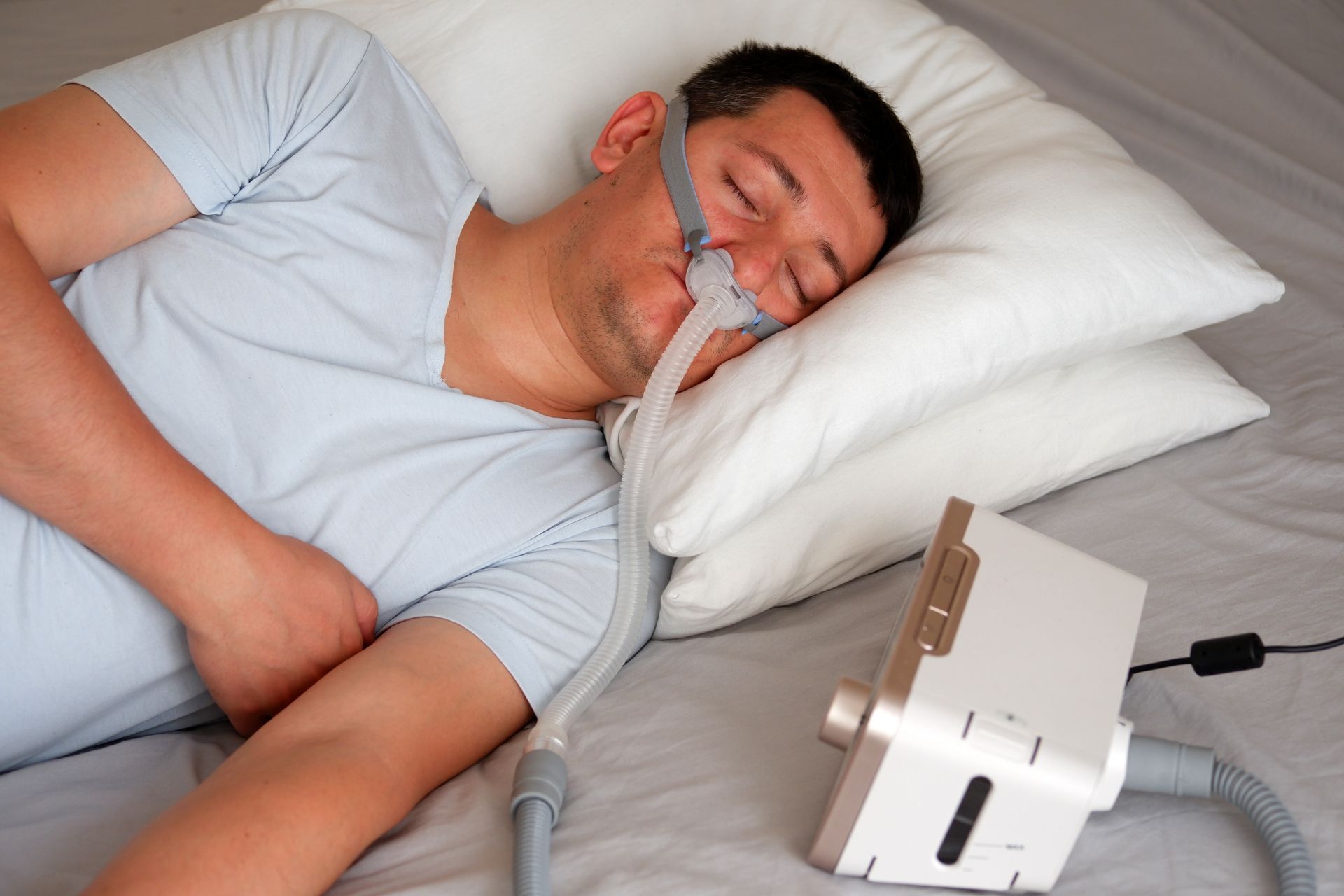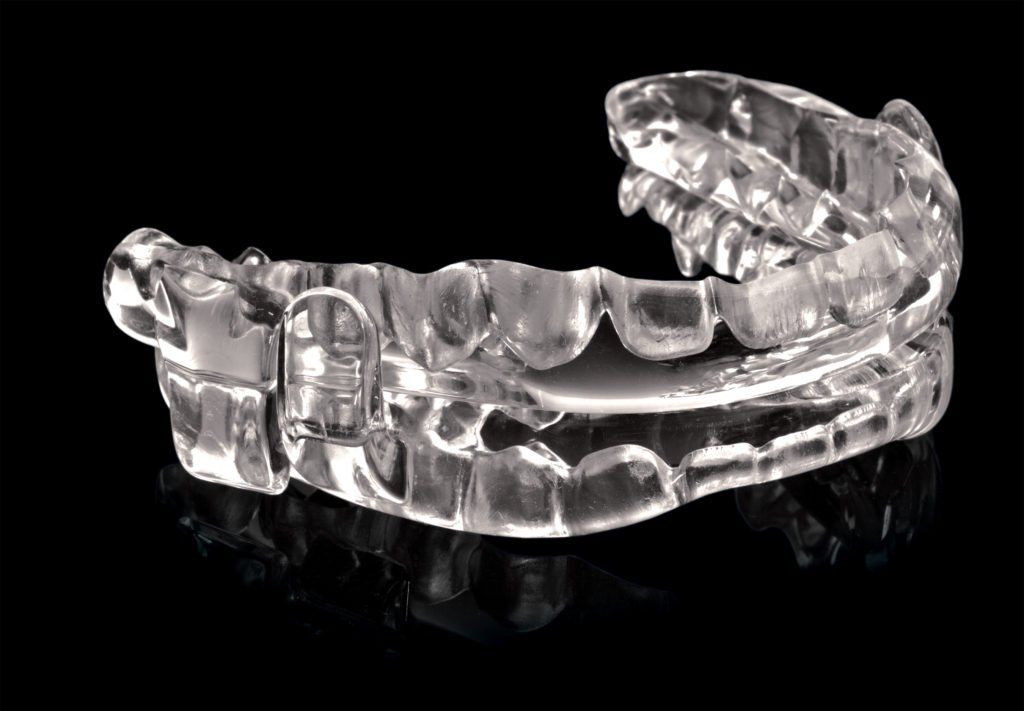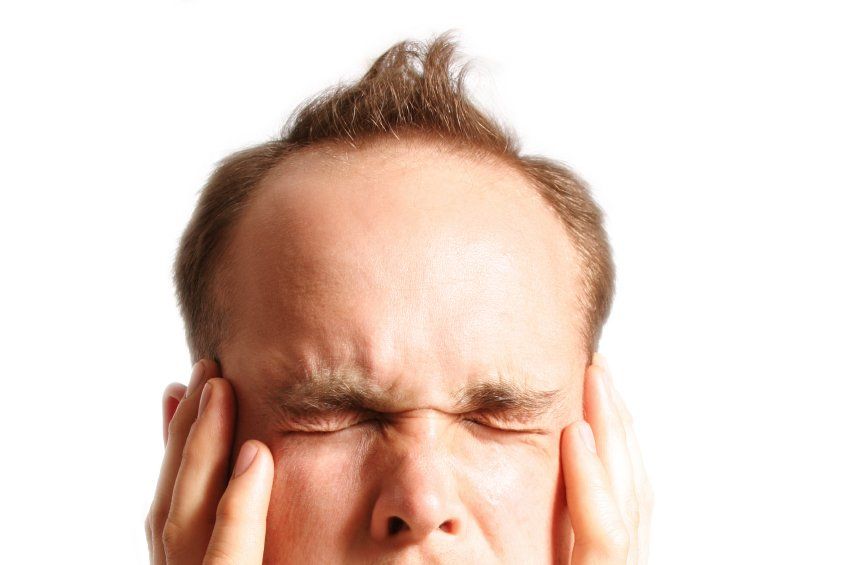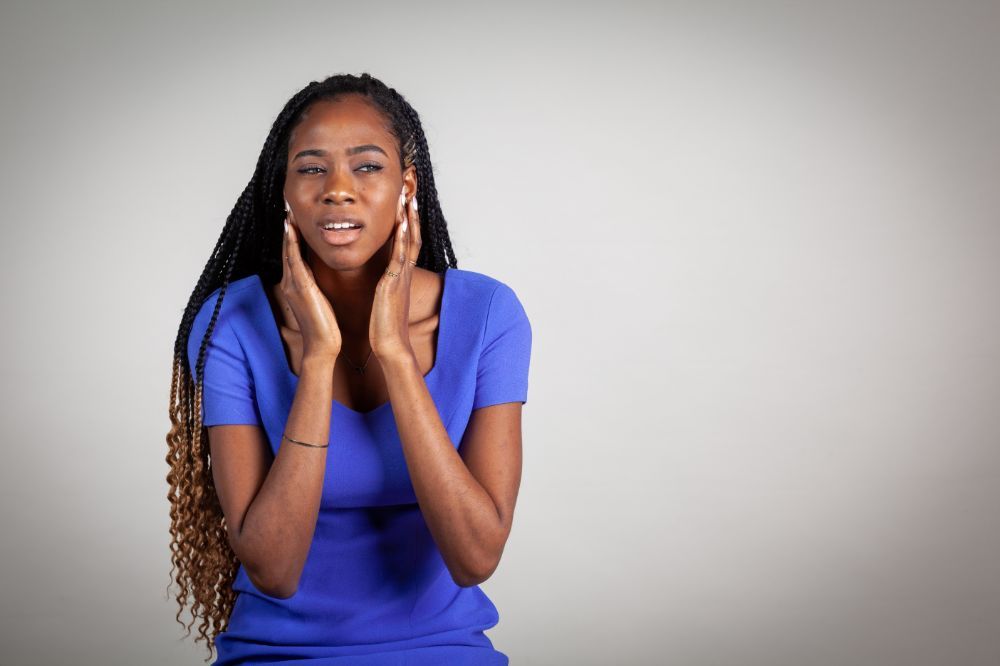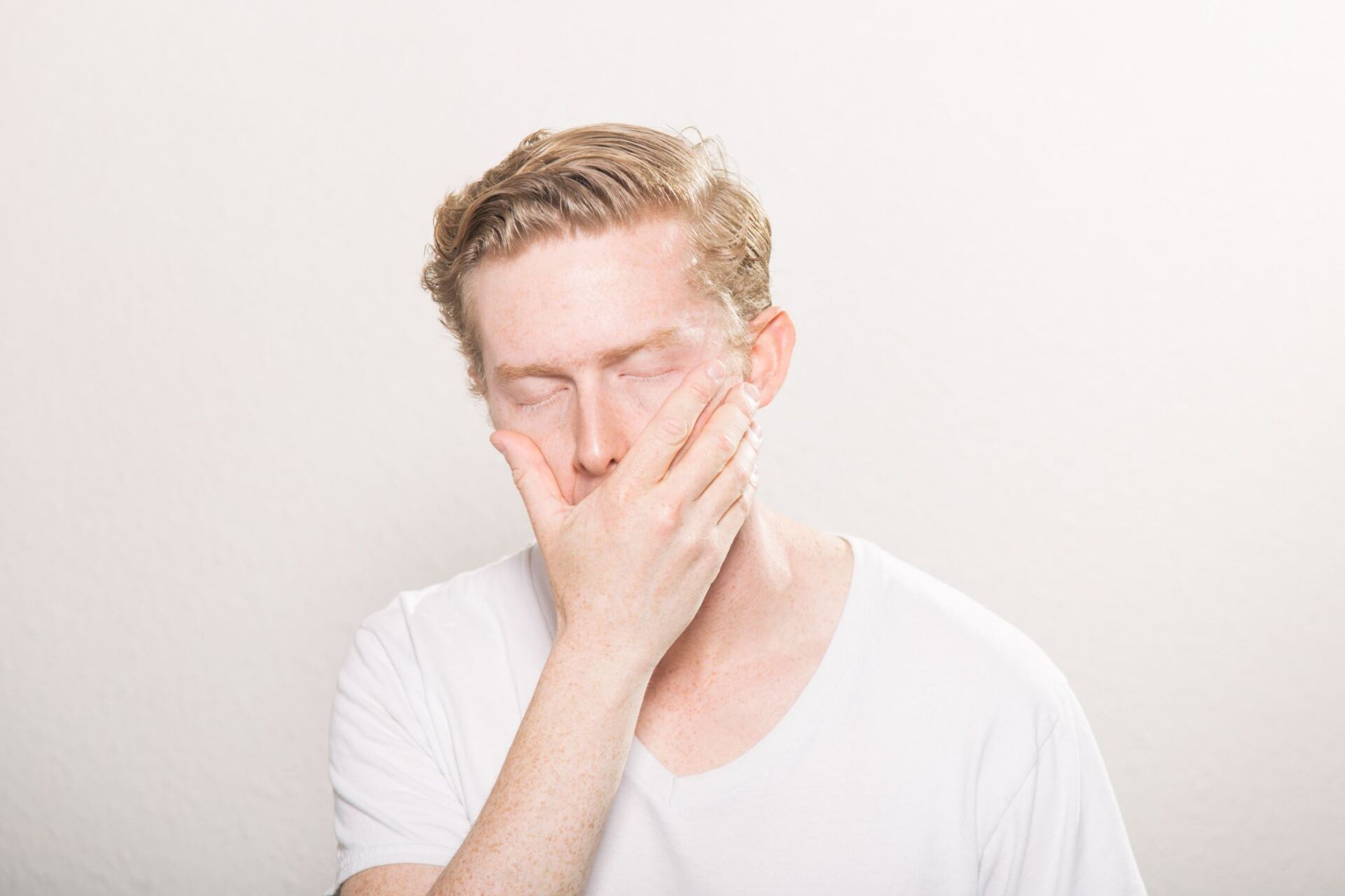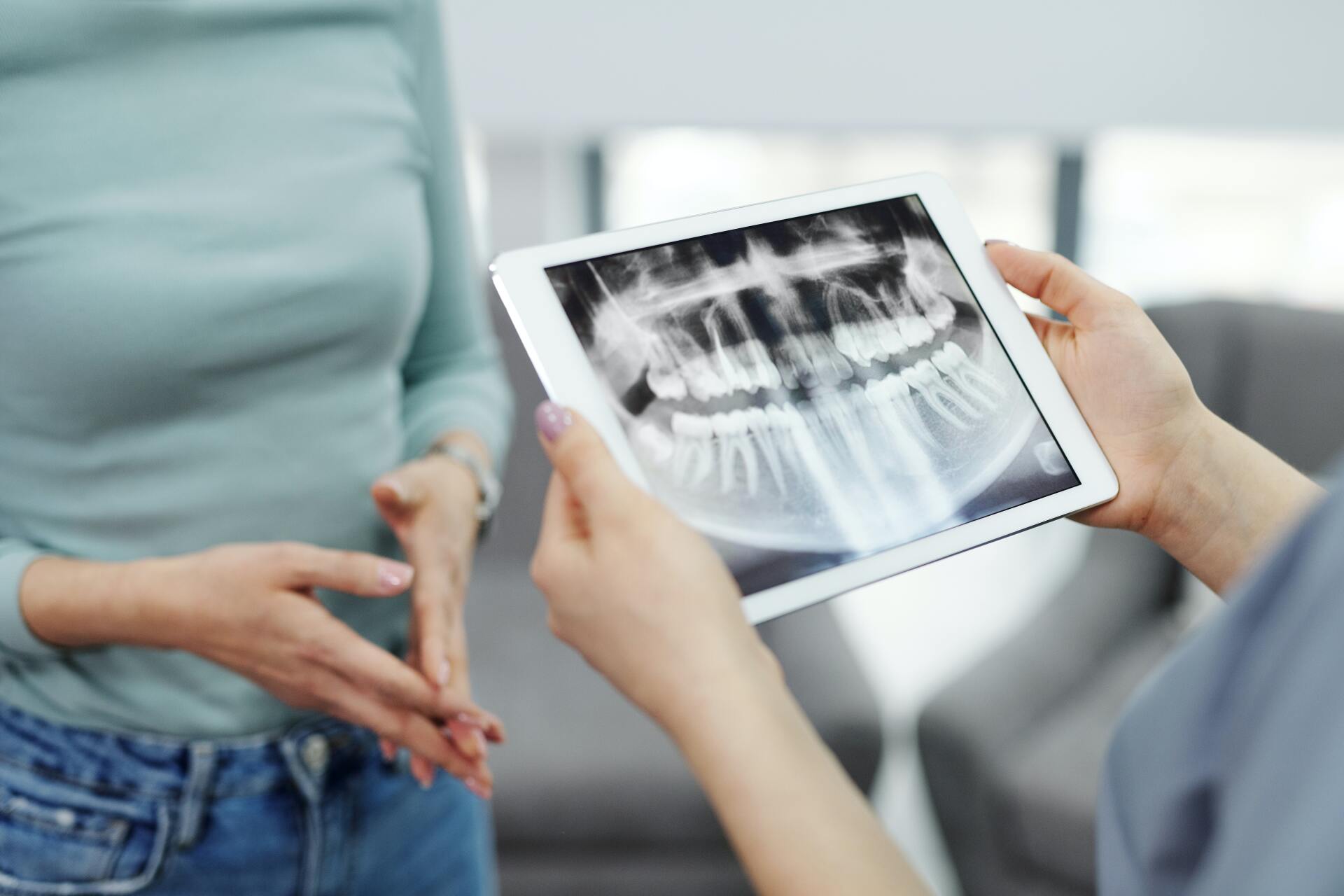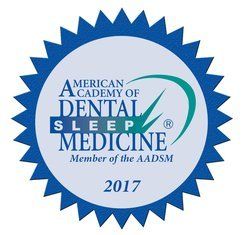Is PTSD connected to TMD?

Although the human brain has a fantastic ability to overcome trauma’s devastating effects, everyone reacts differently. Some of us develop post-traumatic stress disorder (PTSD) as a result, with around five percent of Americans—more than 16 million people—having PTSD at any given time. The long-term effects of PTSD can manifest mentally and physically, resulting in a host of problems, including temporomandibular joint disorder (TMD). TMD causes jaw joint pain that may radiate to the surrounding muscles and tissues, creating various symptoms that often make TMD challenging to diagnose.
Below we explain how the temporomandibular joint (TMJ) works, review TMD symptoms, explain how PTSD affects the body, why it’s linked to TMD, and highlight effective solutions for treating TMD.
How the TMJ Joint Works
The TMJs, located on each side of the head just under the ear, connect the jaw (mandible) to the temporal bone of the skull. They work as sliding hinges that move in multiple directions—side to side, up and down, forward and backward—enabling us to open our mouths and chew, talk, laugh, drink, and yawn. Pain in one or both TMJs can signify TMD.
TMD Symptoms
TMD symptoms vary from person to person, and the same individual can experience different symptoms during different flare-up occurrences. Pain in the jaw joint and chewing muscles are the most common, but other symptoms include:
- Clicking of the jaw. TMD sufferers may hear popping or clicking sounds in their jaw when opening or closing their mouth. This is usually caused when the articular disc inside the joint shift out of and back into place.
- Facial pain. Inflammation caused by TMD can spread to other areas of the orofacial region, including the face.
- Reduced jaw motion. Misalignment or damage to the ligaments, tendons, or cartilage that move the jaw may cause difficulty when opening or closing the mouth, including jaw lock.
- Dizziness. Balance can be affected when TMJ inflammation travels into the middle or inner ear.
- Headaches. Migraines and headaches may occur when TMD-related pain spreads to the top of the head.
- Earaches. The TMJs are located within millimeters of the ear canal and middle ear. Pain originating in the TMJs can easily spread to these areas causing earaches.
- Neck and should pain. Overworked jaw muscles can cause TMD pain that may spread from the jaw down the neck and into the shoulders.
- Chewing pain. Inflammation and swelling in and around the TMJ can result in painful chewing.
What is PTSD and How Does it Impact the Body?
Post-traumatic stress disorder may occur after you experience or witness a traumatic, terrifying event. Although we often connect PTSD to war and combat experiences, it can also be linked to natural disasters, terrorist acts, violence, serious accidents, and more. Emotional symptoms include irritability, sadness, depression, anger, and anxiety. Physical symptoms include increased perspiration, changes in blood pressure, difficulty digesting food, and tiredness.
A terrifying or traumatic experience affects the immune system, the autonomic nervous system, and the endocrine system, which are all interdependent. In response to acute stress, a sudden release of hormones activates the sympathetic nervous system, invoking the “fight or flight” response, also known as the acute stress response. It triggers the adrenal glands to release
catecholamines, which include adrenaline and noradrenaline. When in fight or flight mode, heartbeat and breathing quicken, and the entire body becomes tense, ready to take action.
For those who have PTSD, merely the thought of the traumatic experience activates the fight or flight syndrome, keeping the body in a state of perpetual tension. In addition to the immediate effects of PTSD, over time, it may be associated with ongoing brain tissue loss, putting those who suffer from PTSD at
greater risk for future cognitive impairments and dementia.
How PTSD Links to TMD
When our bodies become tense under stress, we naturally tend to clench our teeth together and tighten our jaw. Although you may not be aware of it, this can occur for extended periods. The continual pressure on the TMJ and tension in the surrounding muscles can result in TMD, causing pain, swelling, and inflammation.
How Could You Seek Help?
It’s essential to be correctly diagnosed and treated for both PTSD and TMD.
Some people can recover from PTSD on their own by connecting with family and friends, practicing relaxation techniques, journaling, and refraining from using certain drugs and alcohol. Often, however, more help is required. Cognitive-behavioral therapy (CBT) for PTSD aims to change patterns of behavior, thoughts, and feelings. Cognitive processing therapy, a type of CBT, helps people living with PTSD modify and challenge unhelpful beliefs related to the trauma.
Left untreated or undertreated, TMD symptoms and pain can worsen, negatively affecting your life and potentially causing other problems over time. It may
eventually lead to arthritis, nerve damage, and permanent TMJ dislocation. For mild cases, physical therapy, hot and cold therapy, at-home exercises, and taking over-the-counter drugs to reduce pain and inflammation, such as NSAIDs (nonsteroidal anti-inflammatory drugs), may help.
It’s wise to see a TMD specialist like Dr. Katherine Phillips. She can treat TMD with a
variety of solutions, including those mentioned above, prescribe muscle relaxants, and create custom-made
TMJ appliances. They include:
- Dental splints (bite plates, bite guards, stabilization splints). These appliances are designed to prevent contact between the teeth and reduce jaw pressure to break the pain and inflammation cycle. Splint therapy can be painless and easy to comply with when the appliance is created, fitted, and adjusted by a dentist who is a highly experienced TMJ specialist.
- Mouthguards/nightguards. Guards such as these may address teeth grinding, but they typically don’t help with clenching that causes an extreme loading force on the TMJs.
Conclusion and Next Steps
Seeking expert diagnosis and TMD treatment is essential to relieve pain associated with TMD and reduce the probability of other health-issues arising due to TMD.
Dr. Katherine Phillips specializes in diagnosing, treating, and relieving pain caused by TMD. She is double board-certified in orofacial pain and dental sleep medicine and has spent most of her career in these two fields instead of general dentistry. With extensive experience and education, she uses mainstream, evidence-based medical science to identify the contributing factors causing your pain and will offer a TMD treatment plan that best fits your needs.
Contact Us Today For A Consultation!
Contact Us
Thank you for reaching out to us at REstore TMJ and Sleep Therapy. We look forward to helping you. We will follow up within 24 hours for contact requests received during normal office hours Monday – Thursday. If you have submitted a request later in the day on Thursday – Sunday, we will follow up on Monday. If you would like to talk to us before we can get to your request, please feel free to give us a call at 281-296-6797 Monday – Thursday 8am – 4:30pm. Have a great day!
Regards,
Dr. Katherine Phillips and Staff
Please try again later.
REstore TMJ & Sleep Therapy P.A.
1001 Medical Plaza Drive,
Suite 200 | The Woodlands, TX 77380
281-296-6797
Dr. Phillips serves TMJ & Sleep patients in: The Woodlands TX | Spring TX | Conroe TX Tomball TX | Cypress, TX | Houston, TX | Kingwood TX | Humble, TX | Katy TX
© 2023 by REstore TMJ & Sleep Therapy | Terms Of Service & Privacy Policy | XML Sitemap
-2700x842-1920w.png)








